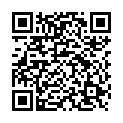|
|
|
| Module code: MBG21-19 |
|
|
5S (5 hours per week) |
|
7 |
| Semester: 6 |
| Mandatory course: yes |
Language of instruction:
German |
Assessment:
Exam achievement
[updated 15.11.2021]
|
MBG21-19 (P311-0197) Management and Professional Pedagogy in Health Care, Bachelor, ASPO 01.10.2021
, semester 6, mandatory course
|
75 class hours (= 56.25 clock hours) over a 15-week period.
The total student study time is 210 hours (equivalent to 7 ECTS credits).
There are therefore 153.75 hours available for class preparation and follow-up work and exam preparation.
|
Recommended prerequisites (modules):
MBG21-1 Academic Methodologies and Study Skills I
MBG21-10 Methodologies II
MBG21-15 Evidence-Based Medical Care and Nursing
MBG21-3 Public Health
MBG21-6 Scientific Work II
MBG21-9 Methodologies I
[updated 27.03.2025]
|
Recommended as prerequisite for:
MBG21.S.32 Reviews and Guidelines
MBG21.S.33 Evaluation
[updated 30.05.2024]
|
Module coordinator:
Studienleitung |
Lecturer:
Studienleitung
[updated 27.03.2025]
|
Learning outcomes:
Good clinical practice (GCP)
After successfully completing this module, students will have the following skills and competencies:
Students will:
Knowledge and Comprehension:
be able to explain the legal, ethical and administrative aspects of conducting clinical trials in compliance with trial protocol.
understand the essential regulations for clinical studies and the relationships between the different parties involved.
be familiar with the processes in clinical trials before, during and after implementation.
be familiar with the most important study documents and quality assurance in clinical trials.
know the importance of the interdisciplinary in clinical trials.
be familiar with the responsibilities and limits of action of each individual participant in clinical studies
Communication and Cooperation:
Students will be able to include perspectives of other stakeholders in their own actions.
They will be able to communicate with the parties involved in a clinical study (authorities, subjects, investigators, etc.) in a manner appropriate to the addressee and the situation.
Scientific Self-Concept/Professionalism:
Students will be able to reflect on the role and responsibilities of a study nurse or study assistant in the context of clinical trials.
Health-Related Risk Communication
After successfully completing this module, students will have the following skills and competencies:
Students will:
Knowledge and Comprehension:
be able to explain key approaches and theories in health communication at micro, meso and macro levels.
be able to name actors and target groups in health communication.
be able to explain the concept of health literacy.
be familiar with best practices for evidence-based patient information.
be able to convey key aspects of evaluating health information in a presentation.
be able to explain the importance of evidence-based health information as a prerequisite for informed decision-making.
The Use, Application, and Generation of Knowledge:
Students will be able to apply the guidlines on “evidence-based health information” in order to independently evaluate a piece of health information selected by themselves.
They will be able to apply their knowledge and skills in media health communication to new technical and health science developments.
Communication and Cooperation:
Students will be able to evaluate health information on the basis of appropriate criteria, justify their own position and lead a professional discussion within a study group.
Scientific Self-Concept/Professionalism:
Students will be able to critically reflect on media concepts in the context of health communication.
They will be able to reflect on ethical issues in health communication.
[updated 15.11.2021]
|
Module content:
Good clinical practice (GCP)
1. Introduction to the development of medicinal products and medical devices (study types, participants, procedure and implementation, German Medicines Act (AMG), Medical Devices Act (MPG))
2. National and international regulations (International Conference of Harmonisation Good clinical practice (ICH-GCP), Declaration of Helsinki)
3. Ethics in clinical trials (ethics committee (tasks, composition, application), patient rights)
4. Regular documentation in clinical studies (study documents, study data, documentation of safety-relevant events, classification systems, test folders)
5. Quality assurance in clinical studies (quality assurance measures (monitoring, audits and inspections))
Health-Related Risk Communication
1. Basics of health communication
2. Health literacy
3. Potential and limits of mass media health communication
4. Evidence-based health communication
5. Health journalism
6. Online-based health communication
[updated 15.11.2021]
|
Teaching methods/Media:
Blended learning
[updated 15.11.2021]
|
Recommended or required reading:
Recommended literature will be announced at the beginning of the course.
[updated 15.11.2021]
|

